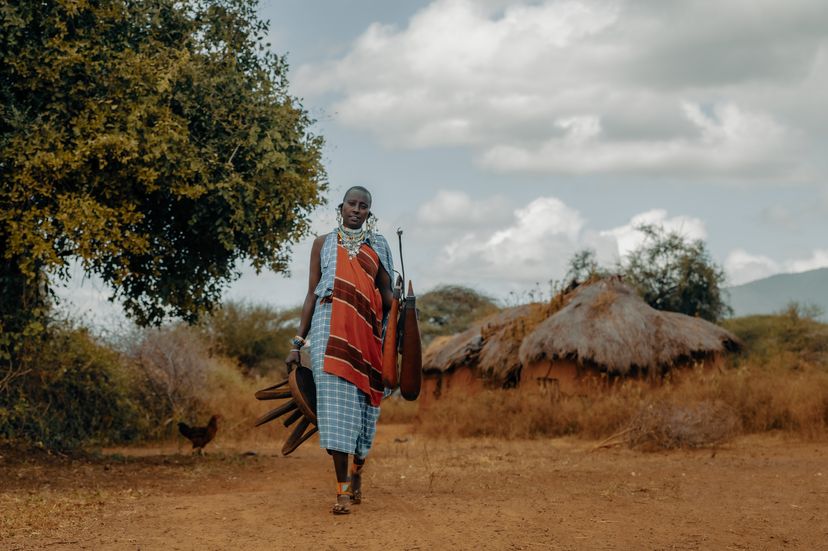At the foot of Mount Meru stands a school with yellow walls and the Maasai coat of arms on the sides. Girls in neat school uniforms attend classes that blend modernity and ancestral customs inside their homes. The school is a fertile ground with green gardens where each year between 80 and 100 African girls are saved, loved, and supported so they can face the world and, if they wish, return to their indigenous communities to give back what they learned in the heart of Tanzania.
The place is called Mobile Learning Lab and is part of the Maasai Women Development Organization (MWEDO), an organization from Arusha, started by a group of women with the vision of addressing specific needs so that they could gradually achieve the empowerment of all of them, through a solid social base and axes that always have community life as a premise through economic strengthening, justice and equity in the distribution of land ownership and access to education for the most disadvantaged pastoral girls throughout local history.
On this path that has been opening up possibilities for the future for 25 years, Ndinini Kimesera Sikar, MWEDO's Executive Director, maintains that 850 women have become landowners and more than 6,300 have acquired financial literacy and business skills through self-help groups.
“We had several fronts to focus our struggles on when we started the organization in 2000: gender equality, social inequality, but we also had many problems with human rights, and specifically issues like the lack of education and illiteracy,” says Ndinini, proud that the initiative currently provides quality education, financial support for school fees, meals, school supplies, books, uniforms, housing, and food to Maasai girls in their first year of secondary school. This support has helped the girls achieve better performance every day in subjects that would have previously been a distant dream, such as math and science, chemistry and biology.
In addition to education, MWEDO has enabled more than 500 companies to establish savings and credit plans that benefit the 10,000 members throughout northern Tanzania. But the fight for the full realization of Indigenous women in Tanzania also has maternal and child health as a primary focus. For many years, Tanzanian women have had to face the stigma of having one of the highest infant mortality rates in the world, especially in rural areas and among indigenous groups like the Maasai, due to limited access to medical care and the fact that among semi-nomadic groups, almost half of births occur without skilled assistance.
That's why MWEDO decided to work with Maasai traditional midwives who established strong links with hospitals. They also conduct outreach campaigns and community education activities to ensure that every mother and baby receives the support they need and is informed that a solution exists. The vanguard of this initiative is the KIPOK Medical Center, a clinic and dispensary near the Manyara region staffed by medical personnel, midwives, and health workers who offer comprehensive care to people living with HIV, including mother-to-child HIV prevention. This equipped facility supports more than 10,000 women and children and provides access to primary health care for individuals and families throughout the Maasai community.
